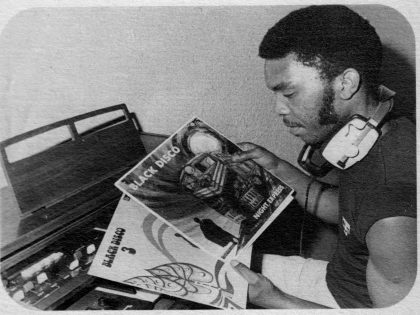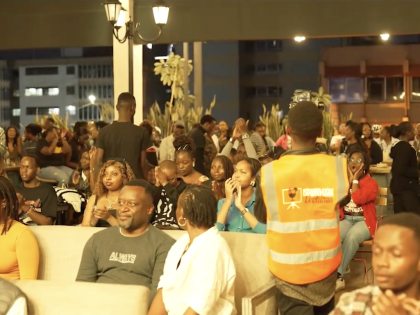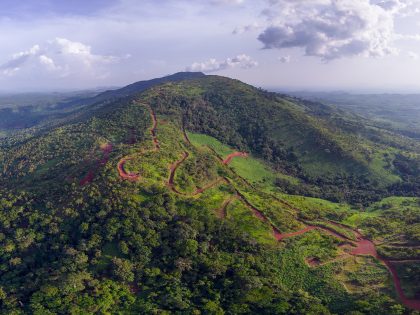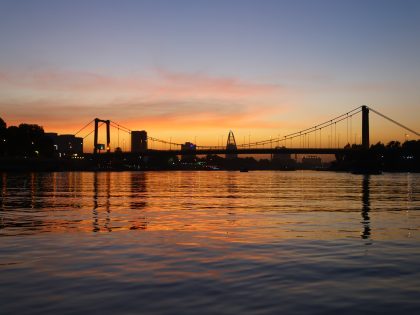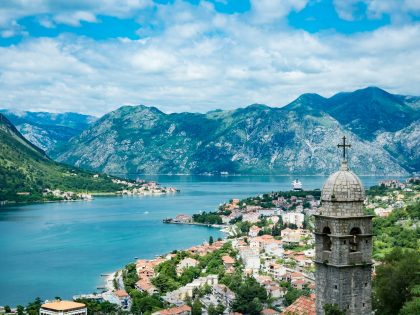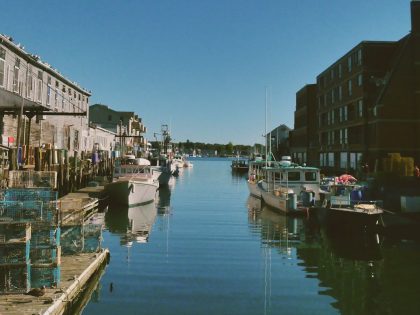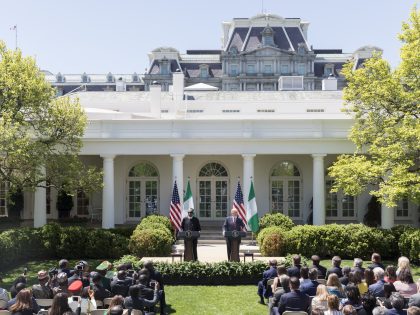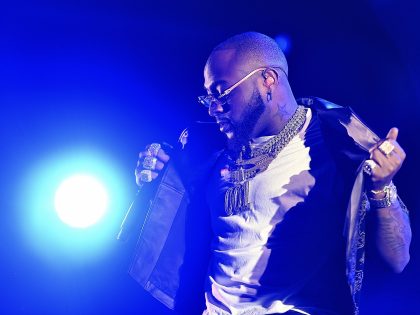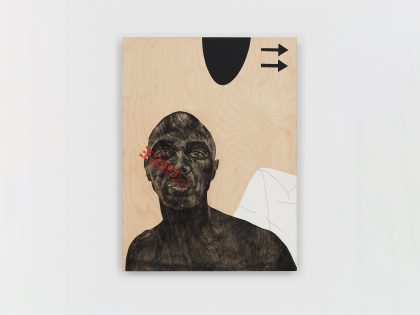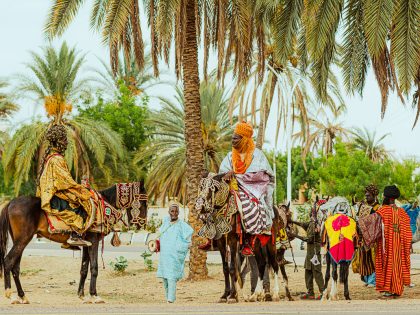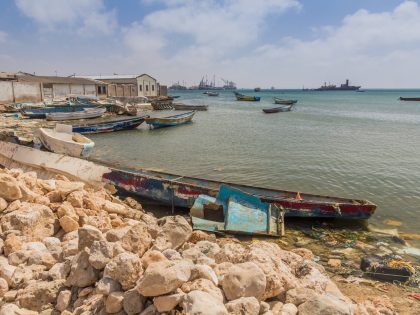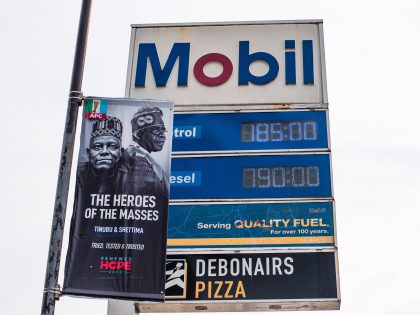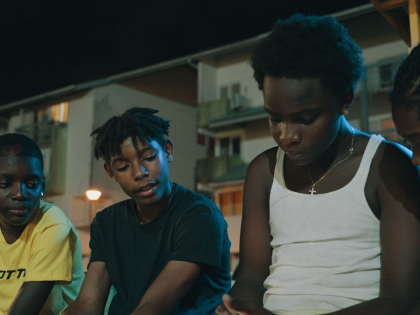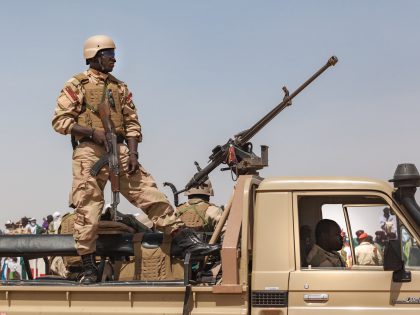Hip hop and electoral politics
South Africans vote on May 2nd, 2014, the country's 5th democratic elections. Do rappers vote?
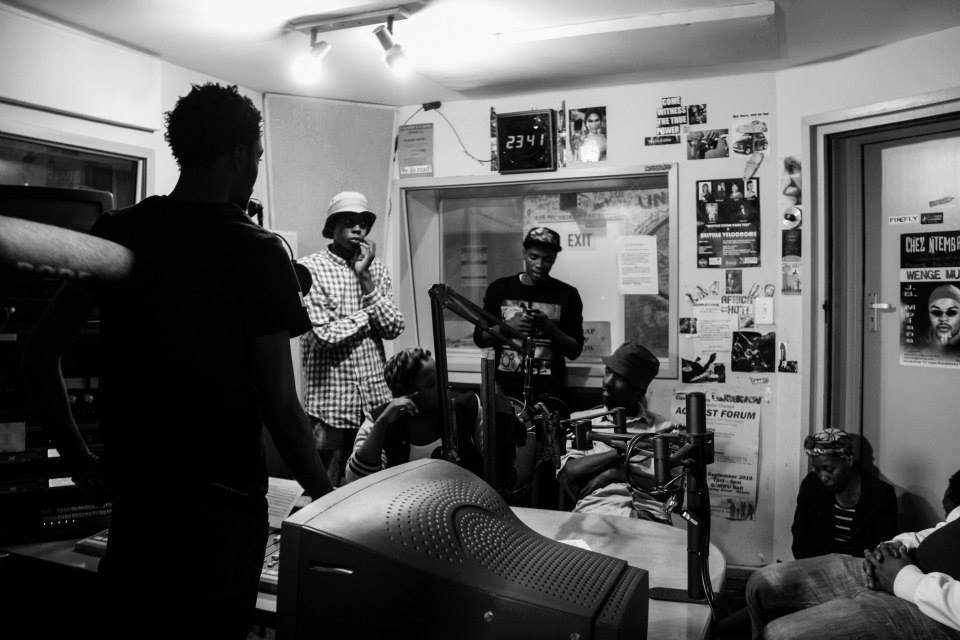
Photo courtesy of Headwarmaz Facebook Page.
Having been hosted by the likes of DJ Ready D, Big Dre, Shameen, and Wanda, just to mention a few, Headwarmaz is now in the hands of the new generation of Cape Town hip hop in the form of Andiswa Mkosi and myself (Sabelo Mkhabela). I am a rapper in my own right but more than a rapper, I am a student of hip hop. I am a hip hop journalist, and I had my first shot at hip hop activism when I joined the University of Cape Town Hip Hop Club which I went on to be chairperson of in 2012. Andiswa Mkosi is an emcee and a photographer from Langa Township in Cape Town. She is also a co-founder of Jam That Session, an arts movement that holds themed events every month.
The show airs every Friday night (10pm–1am) on the oldest community radio station in Africa, Bush Radio and has been a platform for South African (mostly Cape Town) hip hop artists for over 10 years. Headwarmaz has changed hands a lot, and these periods of transition have caused friction due to each set of presenters bring their own direction to the show. Hip hop heads are some of the most outspoken groups of people around. When we joined, comments ranged from “We need (insert name of previous host here) back” to “we want the old Headwarmaz back.” There was the odd “give the new presenters a chance to execute their own ideas” thrown in for balance.
Our Facebook group boasts 3, 700 members and counting. It was created for the artists and listeners of the show to interact with the presenters and with each other. Unfortunately, it has become a hub of controversy; topics such as who the best rapper is in Cape Town to its cousin “who’s the wackest rapper in Cape Town?”oftentimes take precedence. A few individuals have attempted to broach pertinent topics but to no avail. Such posts receive little to no attention. Today, May 2nd, 2014, is different.
The Facebook group is alive. The topic being discussed is the upcoming national elections which will take place next Wednesday. We wanted to know who listeners were voting for, and why. If not, what were their reasons? A majority of the members veered between not voting and voting keeping the ruling party incumbent.
“I’m not voting, I don’t see any good reason to, an I don’t think it will make any difference I’ll just let those who were voting before I reached the right age to vote to continue doing their good work, I trust their choice,” Viwe Bawokazi Ntlanjeni comments.
“I’ll jst put ma X there 4 da late Madiba (ANC) the man who brought ths freedom to us. Othrwise if it was not 4 Mandela i’ll be like fuck Zuma n his crew.” – Massive Dollar Mbikwana
“Akhonto ifuna uxoxwa asivoti qha.” (There’s nothing to discuss, we are just not voting) – Thabiso Tylor KaMbuyelwa
“Voting or not, in politics they already know the president.” – Nenzo Steez Jonathan
“Mna andizuvota” (I won’t vote),
“AM NT GOING TO FUCKEN VOTE. NT ANC. NOT DA. NOT EFF. NOT UDM. NOT COPE. NOT PAC. NOT FOR ANY-FUCKING-ONE! ANDIVOTI QHA” – Letlala Tipa
“So you’re withholding your vote. So IEC and the whole voting system is corrupt. Ok. Then please tell me what’s your solution to this problem you’ve identified? What’s your plan?” was the question posed by Hip Hop Kaslam’s Lady-p Sa’eeda Mkuzo.
The playlist tonight is skewed towards politically-charged songs. Rattex’s Ben Sharpa-assisted “The Government” has been excavated and put on the playlist. Six years later, it’s funny how fitting the song still is.
On the hook of “The Government,” Rattex rhymes in Xhosa: “Kuyode kube nini sihleli sinivotela / nipromise ngokus’khkohela? / kwanina niyas’jikela / Sibek’ingxaki zethu nenze ngathi n’yas’mamela / ningangen’epalamente ingxaki zethu niyaz’khahlela” [Rattex asks how long voters can remain loyal to the ANC while it pretends to care for them — Editor.] He is doing so, at a time where politicians are pretending to suddenly be the best friends of the people. Western Cape Premier and DA leader, Helen Zille is trying her best to prove she’s on their side when she visits a black neighborhood to campaign for votes, while the ANC’s pageantry of exorbitant automobiles snakes between ramshackle shacks and beat-up RDP houses that many township residents call home.
The people, most of them, are fooled. They feel important again. They are getting special visits from their President, their Mayor, provincial Premier and all those they only see on papers and the television. Julius Malema , leader of the most promising newly-formed party, the Economic Freedom Front, was quoted telling voters at a rally on the Cape Flats: “Clothes and material will not define us and we don’t need to live in shacks to fight for you. Doing so will just patronize you. We feel your pain internally.” Malema was partly responding to criticism of his red CLA 200 Mercedes Benz and the expensive designer suits, which he has become synonymous with.
After election day, the people will never smell the sweet scent of the French cologne of a Hellen Zille or a Jacob Zuma or a Julius Malema. Only when the parliamentary term is approaching its conclusion will politicians remember who they really represent. We are all fully aware of this and it is the most prevalent “excuse” we give for not voting. It’s not because Ronnie Kasrils said so.
Ncedisa Mpemnyama is a previous non-voter. He is also half of Delft hip hop duo Jargon Music. He is the villain in today’s discussion as he is, unlike the majority, is for voting. He defends his new state of mind: “But at that time, was there a party that said it wants to have all working people having a basic salary across yonke imisebenzi eyi R4000? Yayikhona a party ethi ‘free education ‘til the first degree?’ Yayikhona a party that says ‘take the mines and put them under government ownership and share the profits with the workers (15 %) community where the mining happens (15)’, and a BEE-like consortium (15 %) etc etc.? That’s why I have changed.”
Ncedisa is an avid supporter and member of the EFF. He asks, “No, guys please let’s be serious here. Okay, [say] we all don’t vote, is that going to give us jobs? Is that gonna decrease crime? Will that assist in moving us out of the ghetto? Will we be iFani too and win a SAMA award? I wanna know – will it make us more educated? ‘Cause I know why it’s useless to vote in the U.S. [but] here eMzantsi, I don’t, I wanna be schooled.”
The responses to that question seem aimed at mocking rather than engaging in an intellectual conversation.
“Focus on uplifting yourself, dude, you won’t save nobody with this,” MC Leo Dube, who has just finished a telephone interview with us, responds.
“I say let Zuma and the ANC homies ball the fuck out. Either way we [are] just sheep who have to decide if we [are] voting for the lions or wolves. Either way we [are] fucked. We [are] a young democracy, we [are] still tryna find our feet and these dudes in power is jus tryna eat,” Leo stated in another comment thread discussing the same topic.
“It’s very interesting how Cape Town hip hop stays socially conscious. Is it because of the issues such as gangs culture that Cape Town faces?” wondered Native Rhythms Records founder – Sipho Sithole at The State of Cape Town Hip Hop talk held in March at the Cape Town Central Library. Cape Town hip hop has a rich history of social consciousness. The earliest reference would be, alongside Black Noise, Prophets of The City’s successful attempts at vexing the apartheid government with their overtly anti-apartheid lyrics. The likes of Goddesa, Ill Skillz, Rattex, Ben Sharpa, Kanyi, Driemanskap, Jitsvinger, Ndlulamthi, Jargon Music, Youngsta, and many more have carried on the tradition. Though not the most lucrative, the Cape Town scene remains coveted for its rawness and authenticity – from the potency of the lyrics to the originality of the beats.
On today’s show, respected New Cross MC, Ndlulamthi has a new song to premiere. “Andivoti” (I’m not voting) echoes the same sentiments the majority of the youth are expressing – the notion that voting doesn’t make a difference. Played towards the end of tonight’s episode, the song stole the show, generating the longest Facebook comment thread which should be going on at least two days from now. In my opinion, that is what hip hop should do – start conversations (not that there’s anything wrong with the booty-shaking songs)
Wrapping up, Andy and I give our own takes on the issue. I am personally not voting because I have always felt that whoever rules the country, I’ll always have to wake up at 5am, force-feed myself, take the train and go work my ass off to pay back my student loans and pay my taxes. Andy stated earlier that she is spoiling her ballot because no party is promising what she would like to see. She seems a bit indifferent, though, and goes on to state that twenty years is not enough to rectify what the apartheid government messed up, mainly the debt South Africa found itself in when the ANC took over. A bit of patience from the people could do. I also add that a lot has changed since then.




